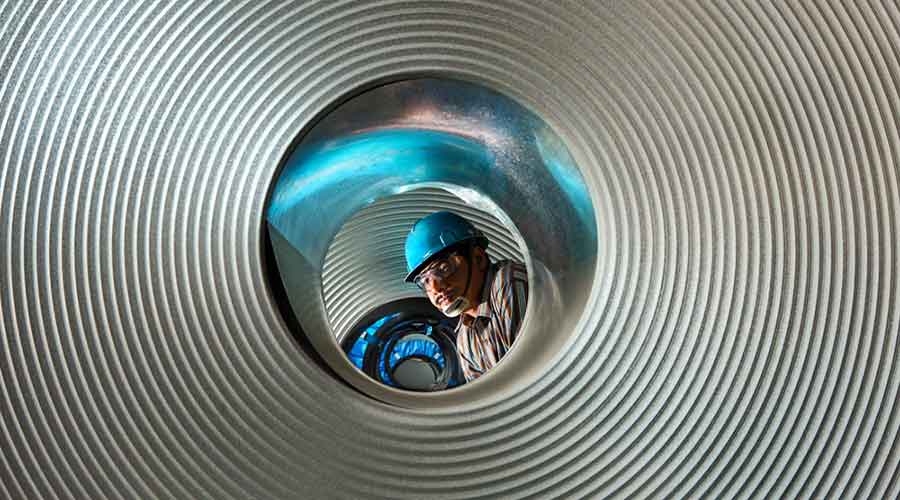A China-induced spike in iron ore prices has disrupted the steel sector, a situation made worse by the parity in the import and domestic price of steel that will necessitate a hike in import duties to protect the industry, analysts said.
Steel prices in India have rallied Rs 4,000-5,000 per tonne on a monthly basis in November, with hot rolled coils rising 10 per cent to Rs 47,000 per tonne and rebars by13 per cent Rs 44,000 per tonne.
Despite these hikes, domestic hot rolled coil prices are trading at par with the landed cost of imports from Korea ($630 per tonne), raising the possibility of further import duty hikes in December, Motilal Oswal said in a research note.
Domestic price hikes in steel are being supported by higher international prices, which in turn are being driven by a sharp rise in Chinese domestic prices. China hot rolled coil and rebar prices are up 10 per cent to 11 per cent in the last two months.
Iron ore exports have surged 70.3 per cent to 29.2 million tonnes (mt) in the first half of the current fiscal compared with the corresponding period a year ago.
About 92 per cent of the exports were directed towards China during this period — the very period during which Indian and China had a violent border standoff in eastern Ladakh and when Chinese products were subject to a barrage of restrictions including the ban on apps.
As much as 27 million tonnes of iron ore were shipped to China which are the highest level seen since 2011-12.
“Iron ore prices have crossed $123 per tonne in September, a level last seen in 2014, amid better Chinese demand and tepid supply due to severe weather conditions and covid induced restrictions in Brazil,” rating agency Care said.
However, prices are likely to retrace to lower levels in the second-half largely on the back of a ramp up of production by the miners in Brazil and Australia, Care said in its research note.
Better export realisations prompted Indian miners to export huge quantities of iron ore despite a sharp fall in domestic production.
“An improvement in (domestic) steel demand post monsoons had supported the rise in prices, but the overall operating margins for 2020-21 will take a hit, leading to deterioration in the debt profile of steel players, which in turn will impact the financial sector as well,” Bal Krishna Piparaiya, senior director, Brickwork Ratings, said
The longevity of any recovery in steel now depends on whether there is consistent new demand both in India and from other countries, along with reforms introduced by the government for the steel sector, Piparaiya said.
International spot iron ore (cost and freight) averaged $119.8 per tonne in October 2020 against $84.7 per tonne in April 2020 and $ 103.3 per tonne in June 2020.
Higher grade iron ore export attracts 30 per cent duty — even after this, India miners are earning huge margins as iron ore (62 per cent ore fines) were imported into Northern China for $130.2 a tonne, the highest level seen since January 2014.
Lower availability of iron ore in the domestic market has sent prices higher over the past few months.
Prices of lump ore and fines (NMDC, iron content 64 per cent) have jumped almost 50-60 per cent since June 2020 to average Rs 3,404.8 per tonne for lump and Rs 3,114.8 per tonne for fines in October compared with Rs 2,256.7 and Rs 1,966.7 for lumps and fines respectively in June. Domestic iron ore prices across grades have doubled from Rs 4,000 per tonne to Rs 8,000 per tonne on an average.
Contrary to rising steel prices, the raw material basket has been a mixed one. While iron ore prices are at a multi-year high, coking coal prices are at four-year low because of restrictions on Chinese steel makers from buying Australian coking coal, causing a supply glut.
Iron ore production fell 50 per cent during April-July of the fiscal compared with the corresponding period of the previous year.
The mismatch in demand and supply is mainly because of a failure to start operation of 14 mines in Odisha which were auctioned in February, Care Ratings sai











